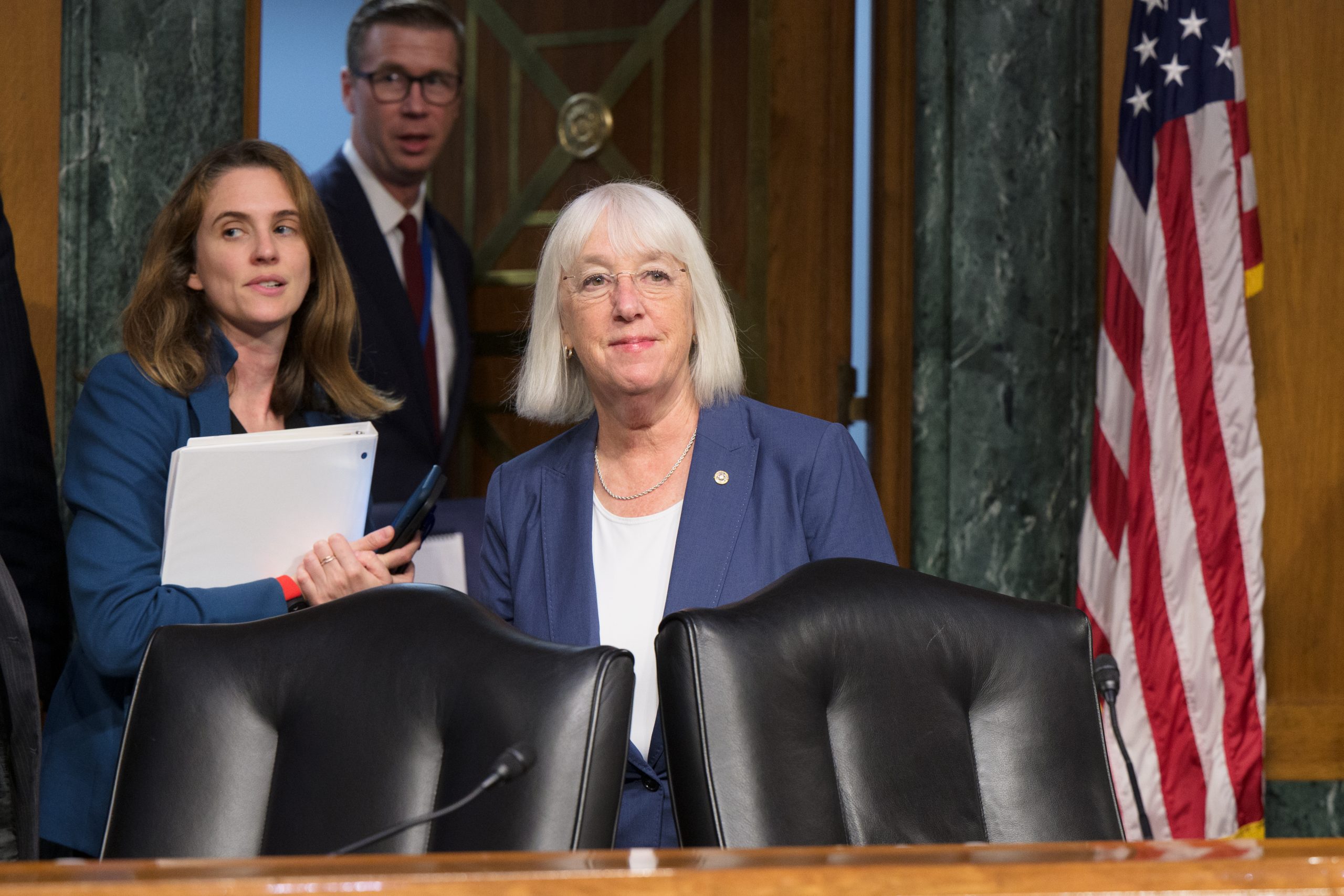Women’s financial security lags behind with retirement savings at 83% of male counterparts
Washington DC – This month, U.S. Senator Patty Murray (D-WA), a senior member and former chair of the Senate Committee on Health, Education, Labor, and Pensions (HELP), U.S. Senator Tammy Baldwin (D-WI), and Representative Lauren Underwood (D-IL-14) reintroduced the Women’s Retirement Protection Act of 2023, legislation to help women overcome barriers that set them back from achieving financial security in retirement.
“Women in America face structural barriers to saving for retirement equally—from the gender pay gap, to the fact that women are more likely to work part-time, to complex rules and legal fees that prevent women from securing retirement resources after a divorce. This is a big problem because, just like investments, inequities compound over time.” dijo el senador Murray. “I’m proud to be reintroducing the Women’s Retirement Protection Act to help close the retirement gap and boost women’s financial security when they retire.”
“Every American who has put in a lifetime of hard work deserves the dignity of a stable retirement. Yet, that secure retirement is out of reach for too many women because of the systematic roadblocks like unequal pay, and time taken off work because caregiving responsibilities fall disproportionately on women,” dijo el senador Baldwin. “I’m proud to fight for families and women to ensure they have the resources and tools they need to retire with peace of mind and stability.”
“As women strive for economic equality in this country, we need to make sure they can retire with dignity,” said Representative Underwood. “That includes ensuring that a woman’s spouse cannot empty their shared retirement savings without her consent. Senator Baldwin and I introduced the Women’s Retirement Protection Act to address economic inequalities and help women achieve financial security and independence.”
De acuerdo con la National Institute on Retirement Security, women’s financial futures are consistently undermined by factors like unequal pay and time out of the workforce for caregiving duties, which make it more difficult to adequately save for retirement. According to a 2020 report from the Government Accountability Office, women may also be prevented from securing the retirement resources they are entitled to following a divorce due to barriers like complex rules and legal fees. These factors can have a devastating impact on women’s ability to retire with dignity. Women, age 65 and older, are much more likely to live in poverty, compared to men in the same age group. In 2022, women’s median retirement income was 83 percent of men’s retirement income. And, according to the Centro Nacional de Derecho de la Mujer, the average woman loses more than $400,000 over a forty-year career due to pay inequality, requiring women to work for almost a decade longer than their male counterparts to make up the gender wage gap.
El Women’s Retirement Protection Act would address some of these challenges by extending critical protections to women’s retirement security and providing enhanced tools to ensure women can better prepare for retirement. Specifically, the Women’s Retirement Protection Act haría:
- Strengthen consumer protections to safeguard retirement savings – For many working families, their 401(k) plan is often their largest asset aside from their home, but under current law, one spouse could take a distribution or a loan from the plan without the other spouse’s knowledge or consent. The Women’s Retirement Protection Act would provide spousal protections similar to those that are available for defined benefit plans to defined contribution plans like a 401(k).
- Increase financial literacy – The Women’s Retirement Protection Act would enhance and bolster women’s financial literacy by providing grants for community-based organizations to help provide information and financial tools to women who are of working or retirement age.
- Support low-income women and survivors of domestic abuse seeking retirement benefits – El Women’s Retirement Protection Act would provide grants for community-based organizations that assist them in obtaining qualified domestic relations orders, the legal instruments that allow for the division of retirement benefits—assuring they receive the retirement benefits they are entitled to following a divorce or legal separation.
El Women’s Retirement Protection Act is also cosponsored by U.S. Senators Maria Cantwell (D-WA), Catherine Cortez Masto (D-NV), Tammy Duckworth (D-IL), Dianne Feinstein (D-CA), Kirsten Gillibrand (D-NY), Mazie Hirono (D-HI), Amy Klobuchar (D-MN), Tina Smith (D-MN), Debbie Stabenow (D-MI), Elizabeth Warren (D-MA), Bernie Sanders (I-VT), Richard Blumenthal (D-CT), Bob Casey (D-PA), Tim Kaine (D-VA), Jeff Merkley (D-OR), and Ron Wyden (D-OR).
El Women’s Retirement Protection Act is supported by the National Women’s Law Center, Pension Rights Center, AARP, and the National Committee to Preserve Social Security & Medicare.
A one-pager on this bill is available aquí. Full text of this legislation is available aquí.
###


